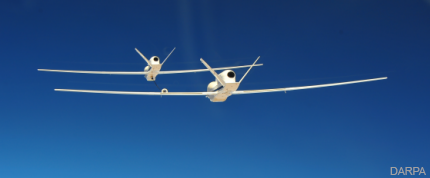Researchers demo cyber defenses for drones
The University of Virginia demonstrated techniques designed to harden unmanned systems from cyber attacks.

The University of Virginia and Georgia Tech's Research Institute said they have demonstrated a concept for improving defenses against cyber attacks on unmanned systems.
UVA's School of Engineering and Applied Science’s "system-aware cyber security" concept along with "Secure Sentinel" technology developed under a Defense Department grant were tested during a weeklong series of live flight cyber attack scenarios, university researchers said Dec. 1.
The demonstrations duplicated ground-based and insider cyber attacks along with supply-chain disruptions. Threat scenarios included GPS-embedded data manipulations designed to throw unmanned systems off course, hacking of metadata related to imagery being transmitted by drones and security breaches of payloads.
As the military expands its use of unmanned vehicles, protecting them from cyber and electromagnetic spectrum attacks has become a priority. Among the security vulnerabilities of unmanned vehicles and aircraft are the radio-frequency links between platforms and controllers. The demonstrations sought to test the effectiveness of countermeasures designed to harden unmanned systems to resist such cyber attacks.
The researchers claimed that security technology was able to detect and correct unmanned system performance in the face of real-world cyber attacks. "The cybersecurity Sentinel system includes design features that allow it to be far more secure than the system it monitors,” Barry Horowitz, a professor of systems and information engineering at the University of Virginia, explained in statement.
A university consortium led by the Stevens Institute of Technology in New Jersey developed the Secure Sentinel technology. The University of Virginia, a member of the DOD-funded consortium, recently licensed the technology to Mission Secure Inc., a cyber defense software company based in Charlottesville, Va. The company is seeking to commercialize the technology for military, intelligence and civilian applications.



